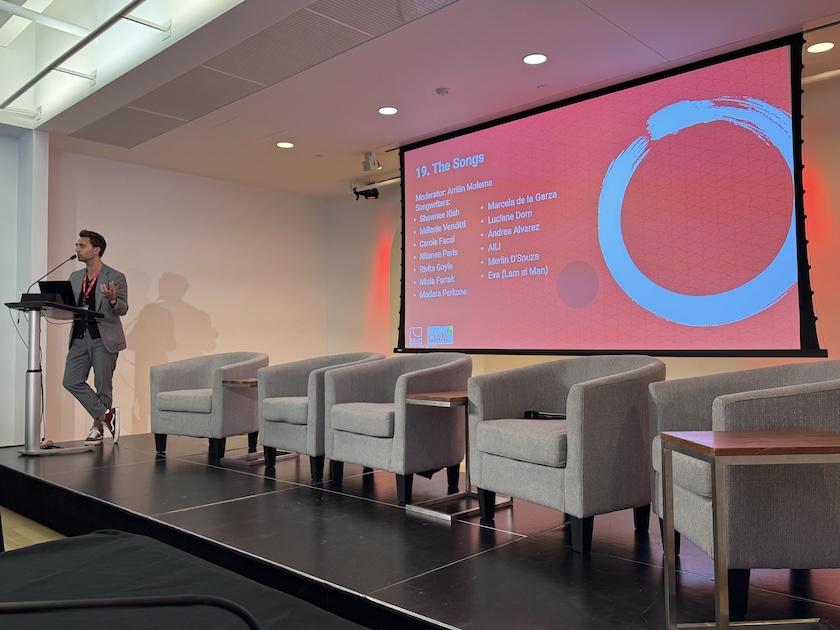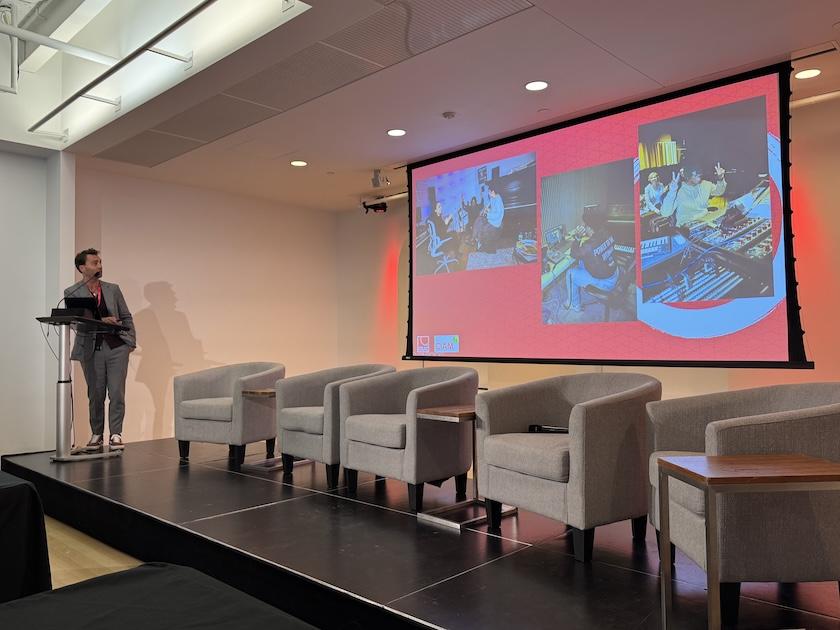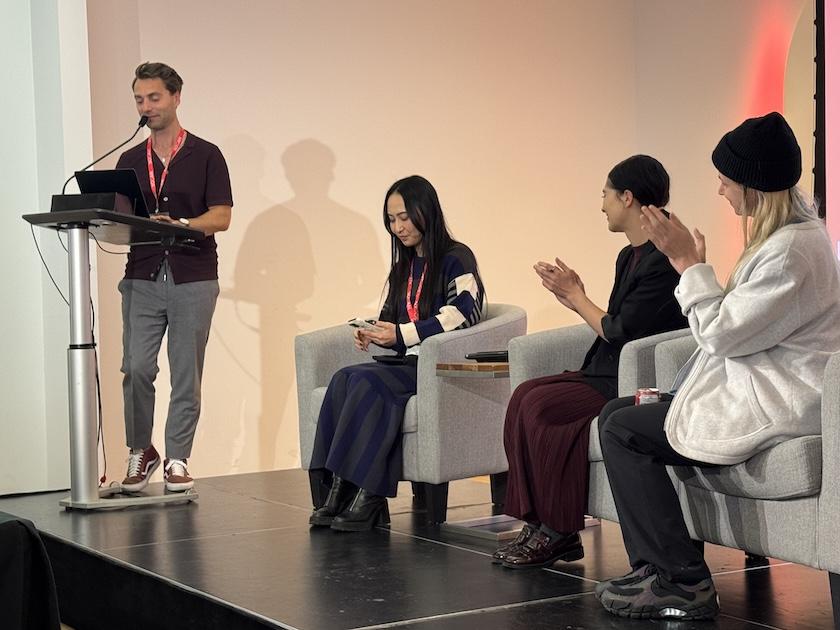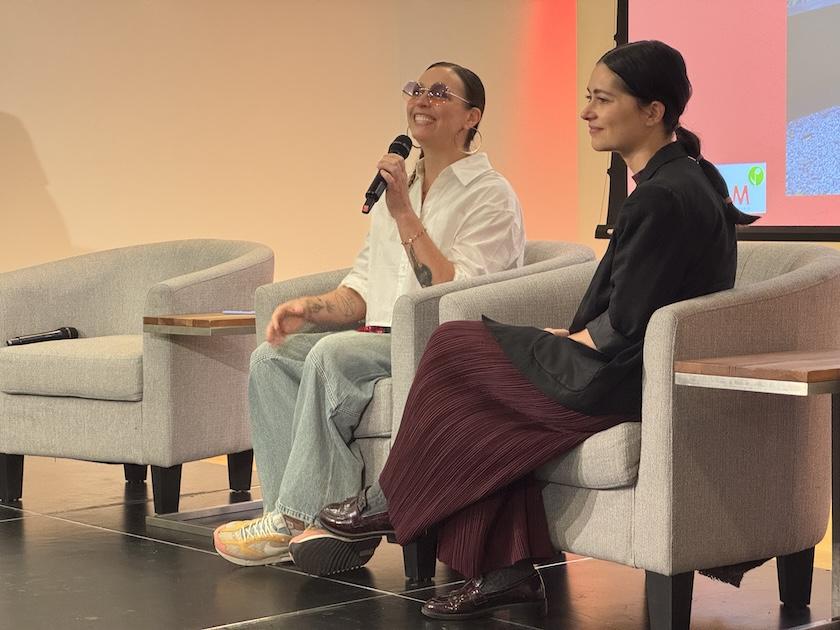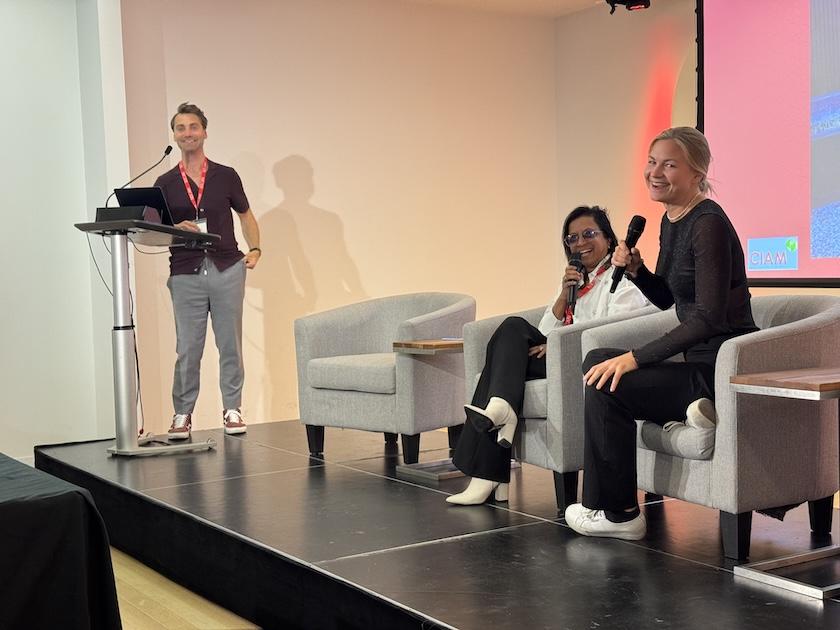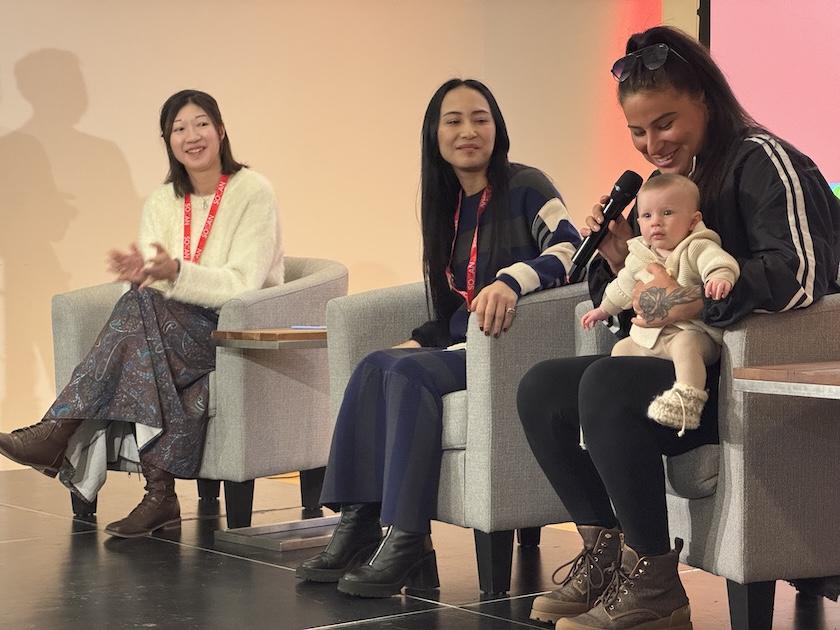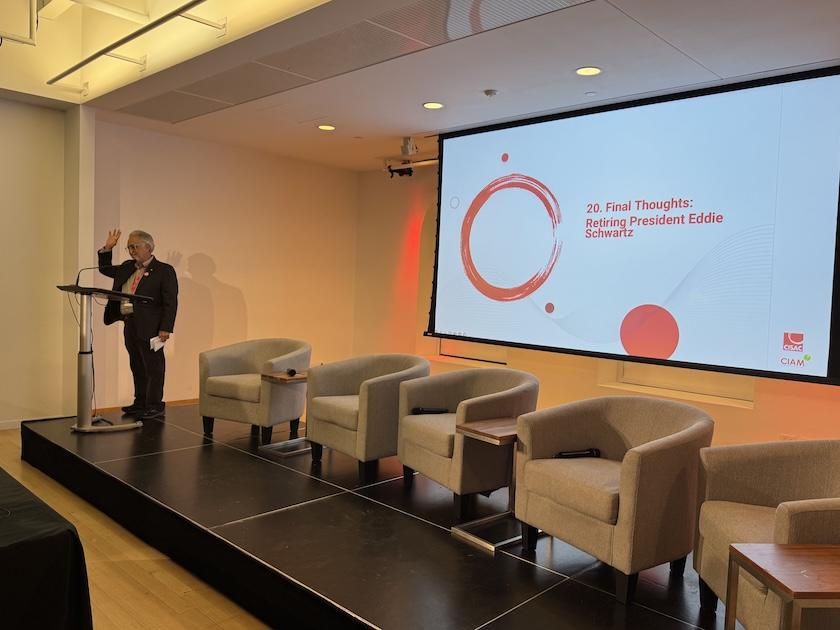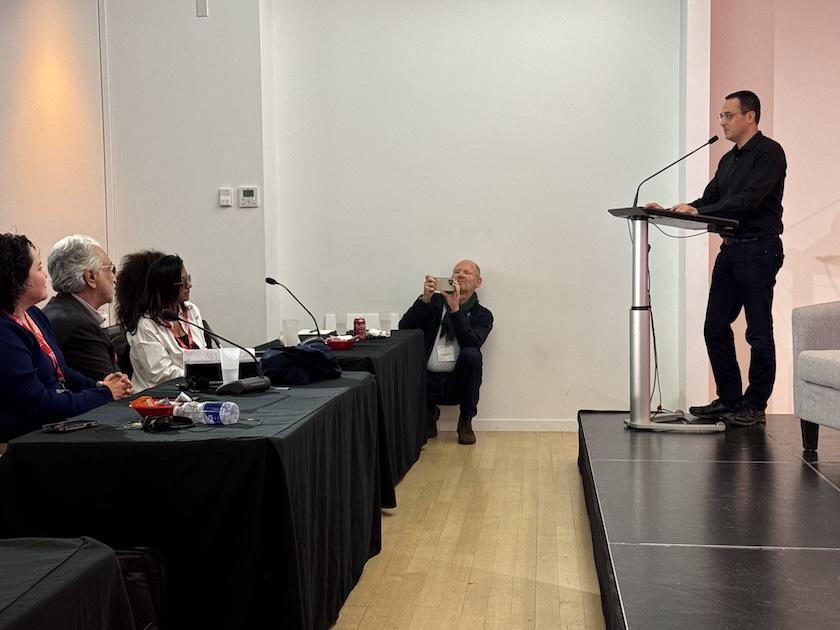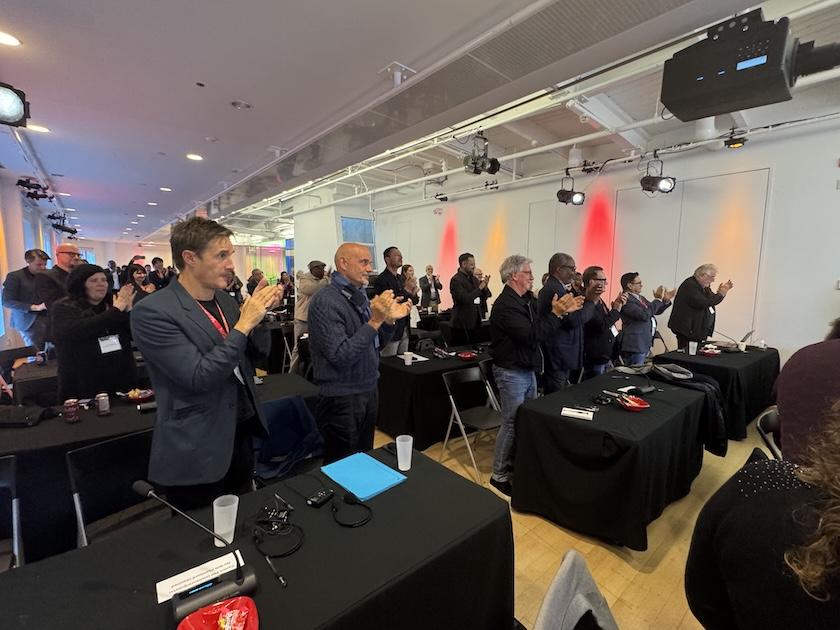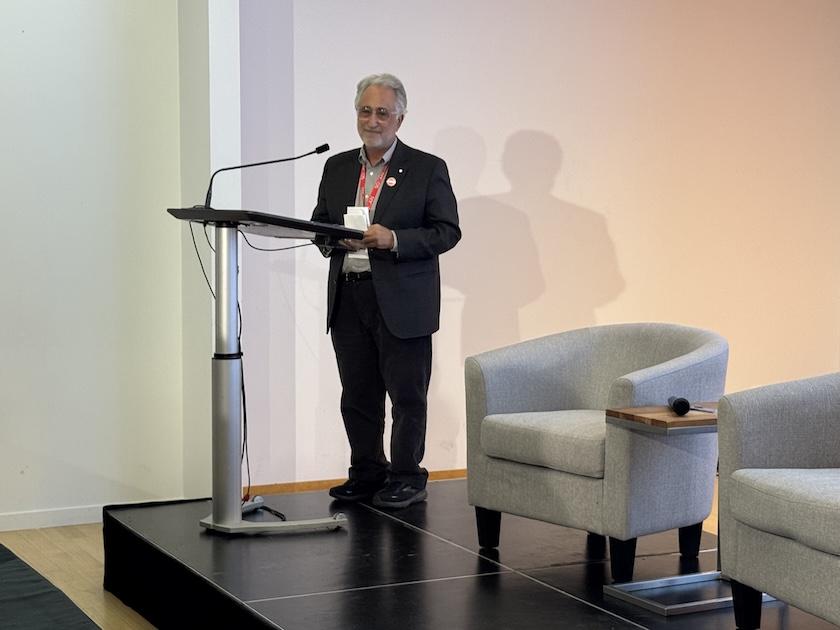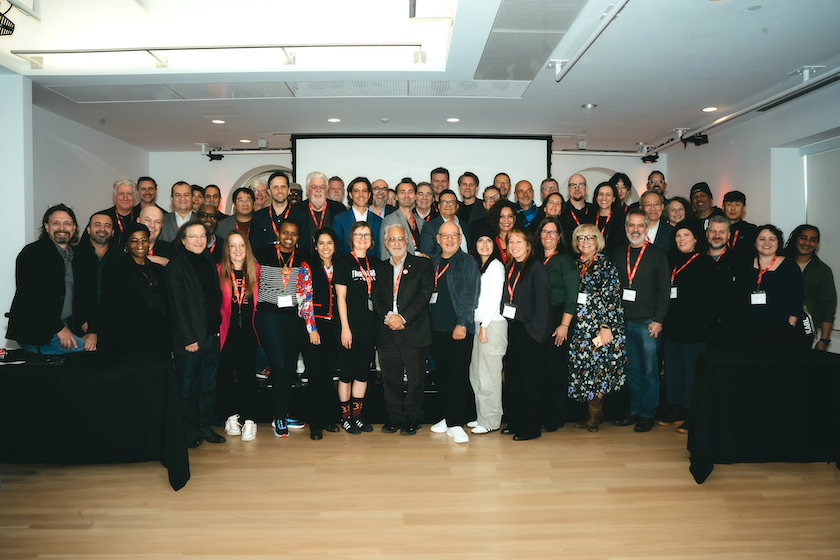
Music creators push for the case for agency at CIAM General Assembly in Montreal
The 2024 CIAM (International Council of Music Creators) General Assembly, held in Montreal and hosted by SOCAN on October 23rd and 24th, brought together music creators, industry professionals, and legal experts to advocate for increased agency in a shifting digital landscape. With the rise of generative AI and evolving technology, the GA highlighted the pressing need for music creators to retain control over their work, financial security, and mental well-being.
See the full photo gallery here.
Opening of the GA
Outgoing CIAM President Eddie Schwartz set the tone with a call for music creators’ agency, which he described as their ability to exert power over their creative and economic lives. Schwartz, who has championed music creators’ rights throughout his six-year tenure, emphasized the need to protect creators from the advent of AI, which poses risks to the sustainability of their careers.
He was joined by SOCAN President Marc Ouellette, who underscored the critical role of creators, “We are the raw materials of the music industry,” Jennifer Brown, SOCAN CEO, pointed out the importance of local talent and creativity to a country’s culture, adding that while innovation is vital, it should not come at the expense of middle-class creators.
Key speakers, including representatives from the Songwriters Association of Canada (SAC) President Arun Chaturvedi, SPACEQ-AE Director General Ariane Charbonneau, and Screen Composers Guild of Canada (SCGC) former President John Welsman echoed Schwartz's calls for creator agency.
CISAC Director General Gadi Oron provided a global overview of music creators' status and presented the 2024 CISAC Global Collections Report, showing that royalties increased by 7.6% to €11.7 billion in 2023.
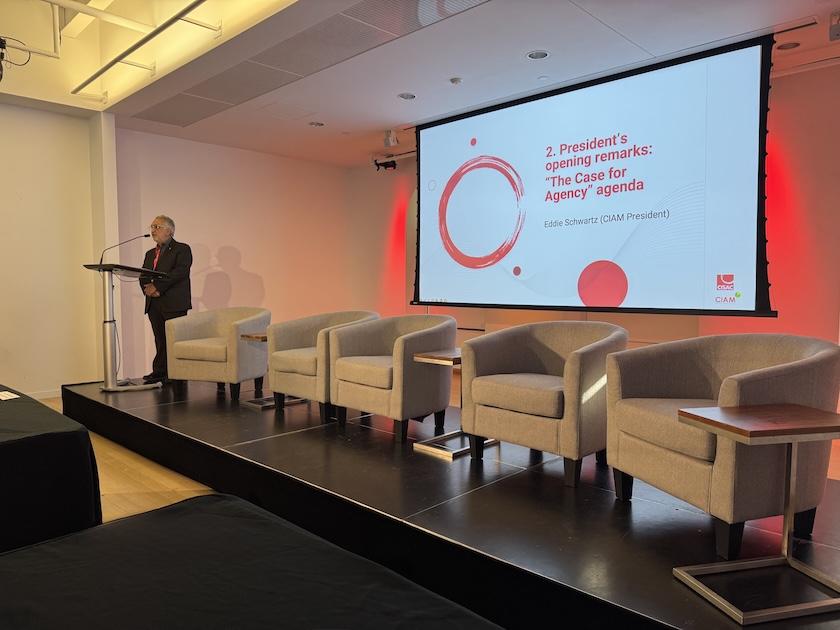
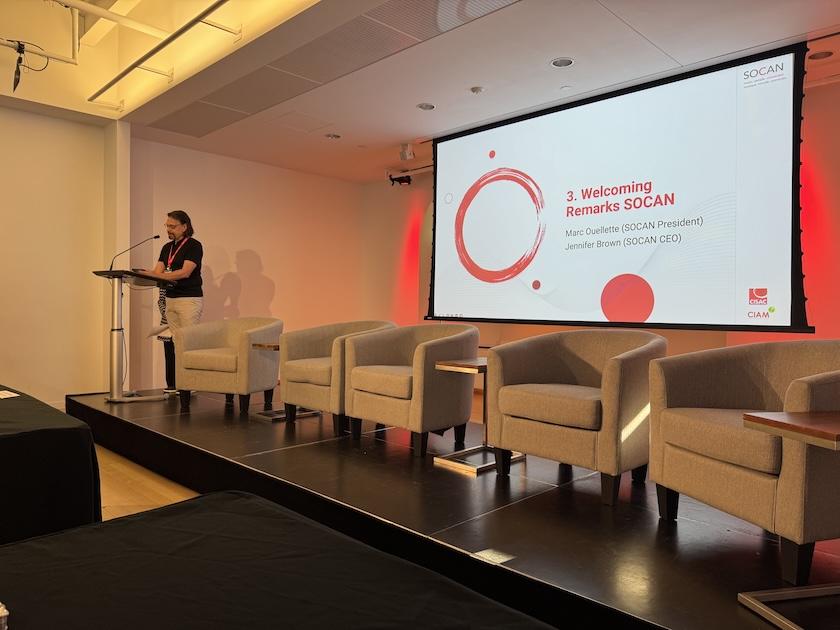
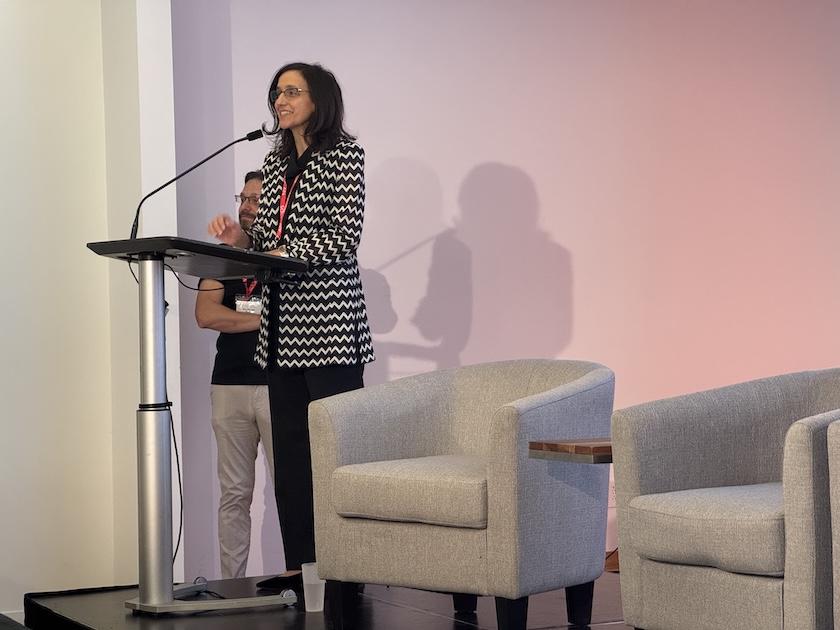
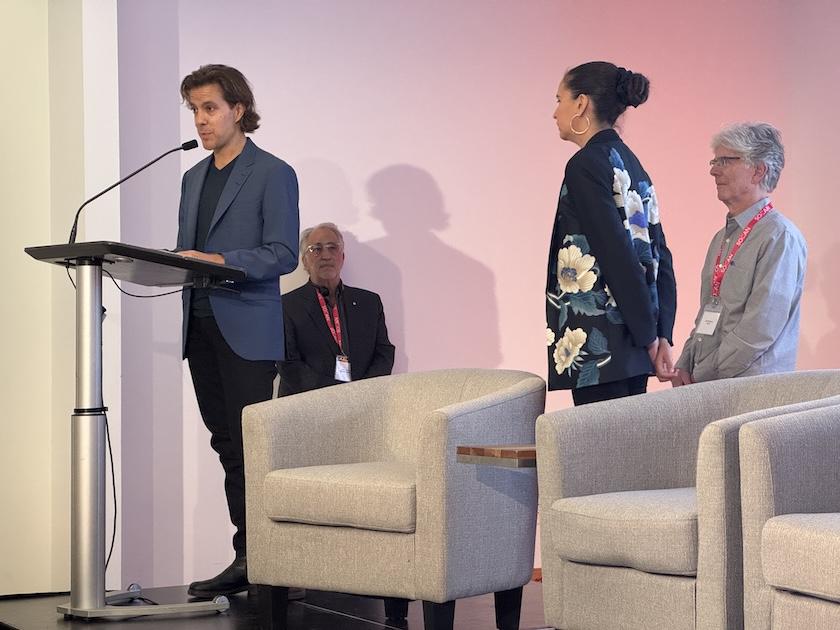
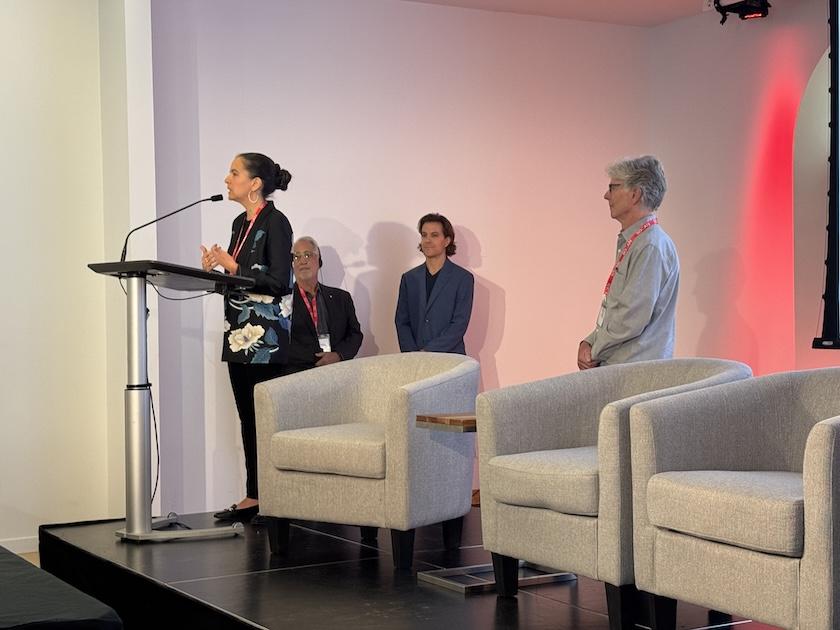
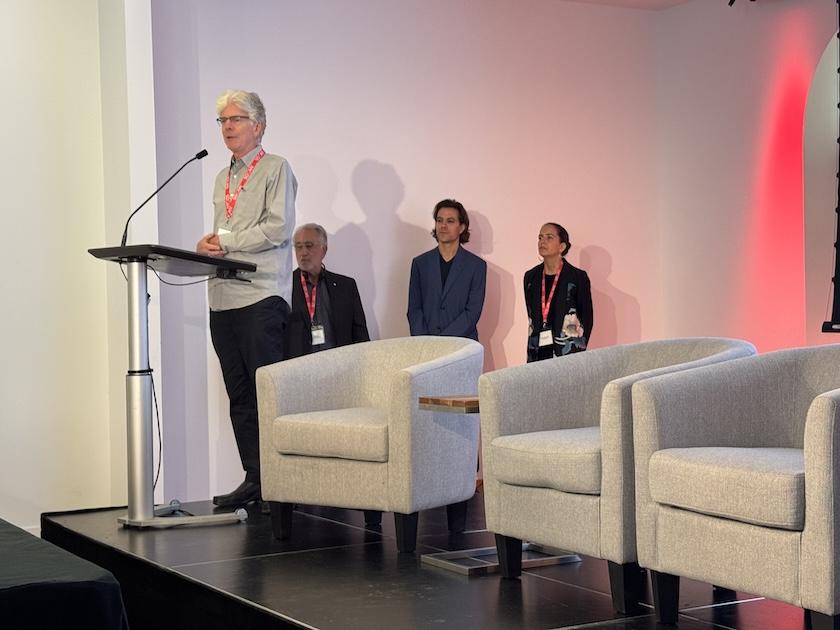
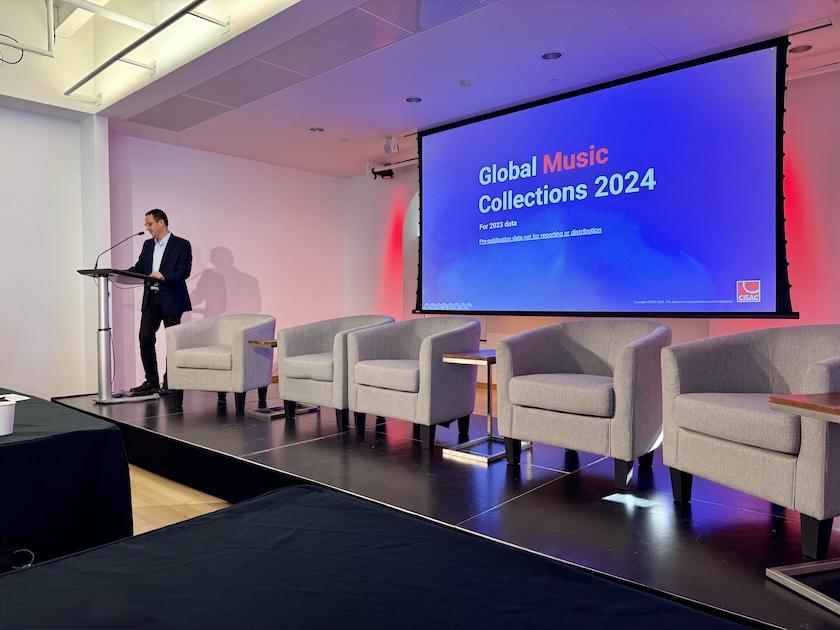
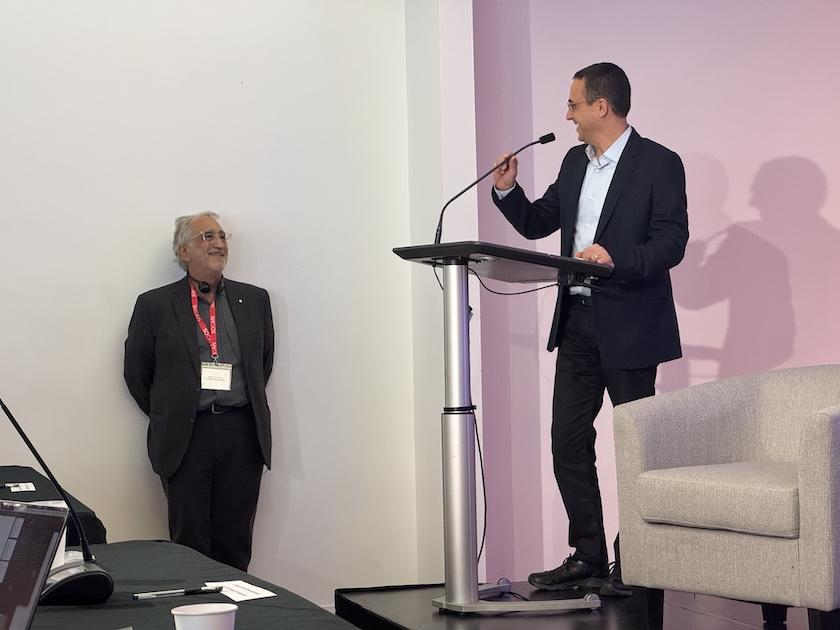
Elections announcement for 2024-2026 CIAM President & Executive Committee
The assembly marked a significant transition in CIAM leadership. Eddie Schwartz concluded his presidency with Netherlands BumaStemra songwriter Arriën Molema being announced as new CIAM President. In his acceptance, Molema said, “Copyright was installed to create independence for creators, or agency, from kings, courts, and states to spread independent thoughts, strengthen society, freedom of information, and freedom of expression.” Molema expressed CIAM's commitment to champion creators' rights globally and framed these as fundamental human rights.
The new CIAM Executive Committee for 2024-2026 includes:
- Amanda Brown (Australia, APRA)
- Crispin Hunt (United Kingdom, PRS for Music)
- Carlos Lara (Mexico, SACM)
- Eleanor McEvoy (Ireland, IMRO)
- Stan Meissner (Canada, SOCAN)
- Thando Nyameni (South Africa, CAPASSO)
- Facundo Saravia (Argentina, SADAIC)
- Dr. Ralf Weigand (Germany, GEMA)

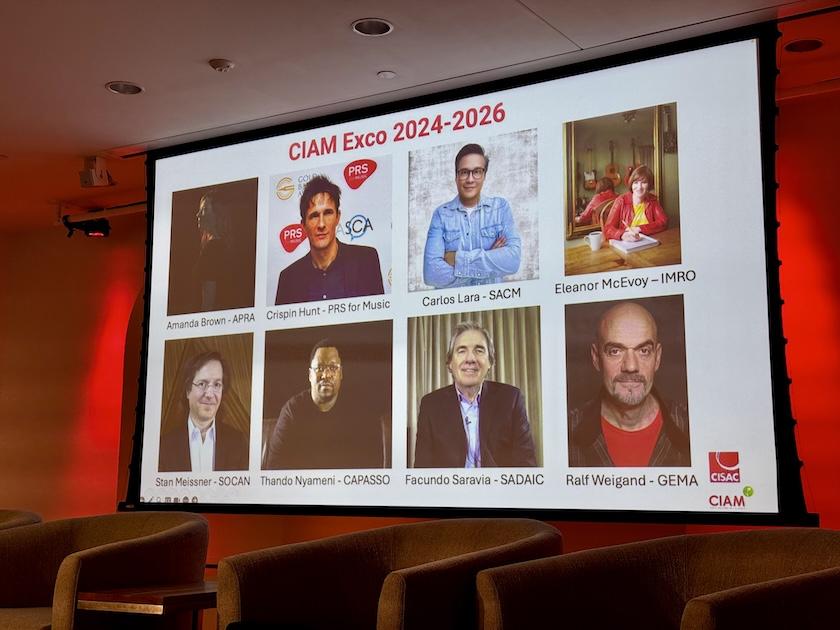
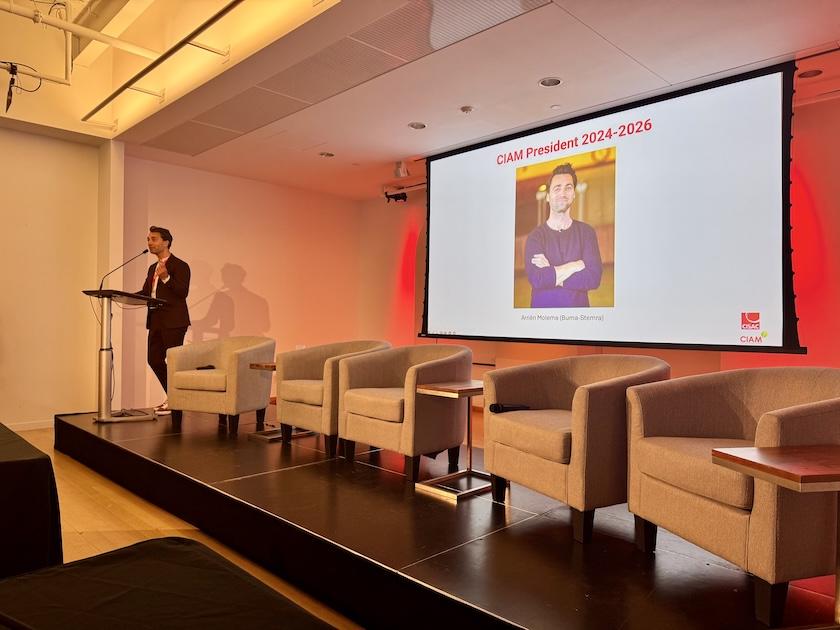
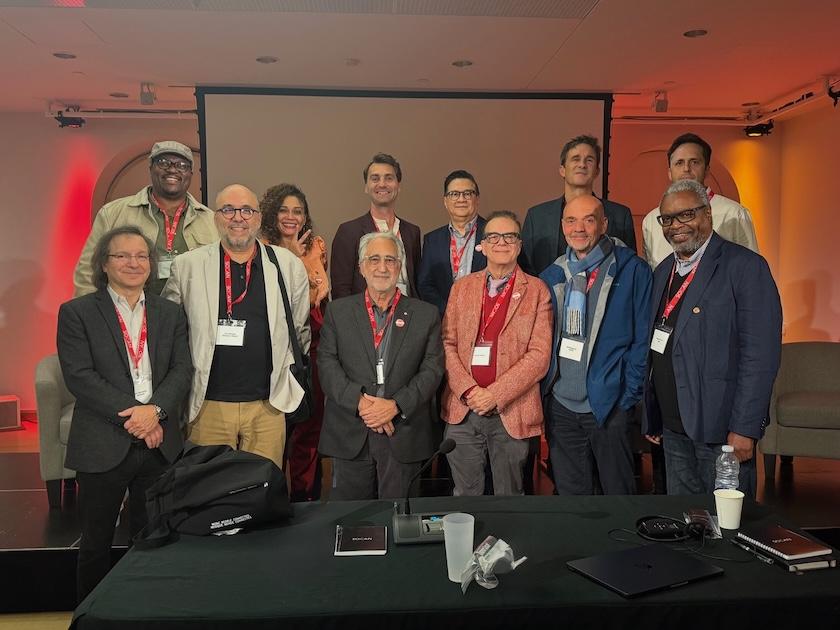
AI and new right to remuneration keynote
Vanderbilt University Law Professor Daniel Gervais, author of a FTMI and CIAM legal white paper, delivered the keynote on the need for a right of remuneration for music creators when AI utilizes their work to generate content. Gervais emphasized the dangers that AI poses not only to current creators but also “I am equally worried about future creators that may not exist or may not have a chance because the machines have taken over.”
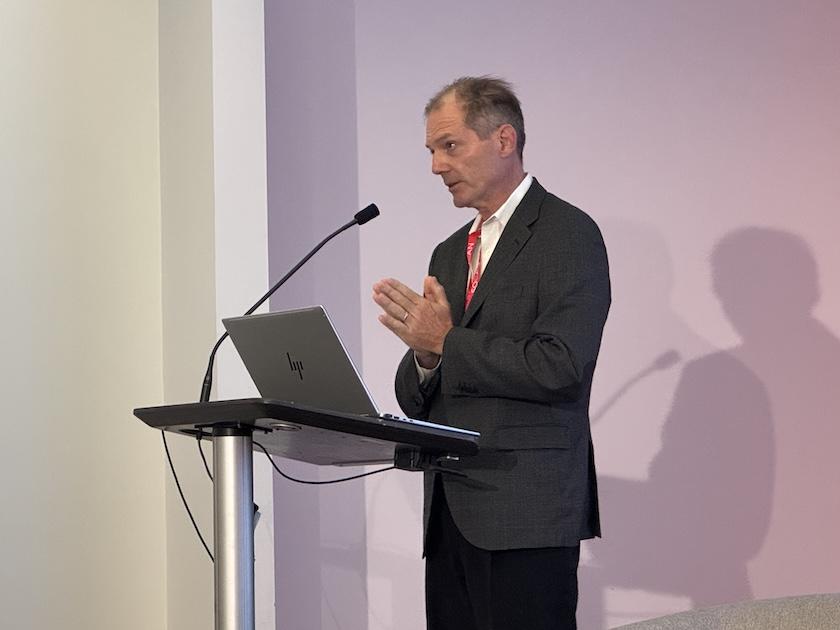
General Assembly Panels
The panels covered various important issues, including collective rights management, relationships with publishers, legal challenges facing creators, and the future of music creation.
In a panel, CISAC DG Gadi Oron, SOCAN CEO Jennifer Brown and UBC CEO and CISAC Board Chair Marcelo Castello Branco discussed the state of collective management reflected by perspectives from Canada and Brazil. Saturation for digital subscribers, concerns about broadcasting collections, and the health of live music from festivals to small venues were spotlighted.
A courts, legislatures and rights panel moderated by Eddie Schwartz included Stephen Stohn (Chancellor at Trent University), Andrea Kokonis (SOCAN), and Charlie Sanders (MCNA). It examined approaches to generative AI and rights and possibilities of a new international treaty regarding AI.
Sustainability in the face of market saturation, creators juggling multiple hats, and pressure to sign away rights was at the core of a panel moderated by Dr. Ralf Weigand of GEMA featuring Ariane Charbonneau (SPACQ-AE), SATE (SAC), John Rowley (SCGC), and Darren Fung (SOCAN).
Amanda Harcourt of Entertainment Rights Management led “The Road Traveled and the Road Ahead,” featuring ASCAP President Paul Williams, Michael McCarty from Kilometer Music Group, and Wally Badarou of AMA. Panelists highlighted the value songwriters bring that AI cannot replicate, the need for improved data, and that larger artists should be more vocal in supporting collective rights of all creators.
A technology-focused panel, moderated by Carlos Lara (SACM), featured leaders like Andrew Goodwin (Bitsonic), Dan Kurtz (Salt), Kevin Casini (RME), and Paul Gills (CMRRA and SX Works). It revolved around how technology can help “find money left on the table” by enhancing data accuracy and usage tracking.
A panel highlighted the importance of unity between publishers and creators. Eddie Schwartz moderated the panel featuring Ger Hatton (IMPF), Margaret McGuffin (MPC), Odette Lindsay (APEM), and Greg Johnson (MCNA), who agreed that having creators involved in government-level discussions help protect rights. The panel underscored the need to create a united front against those who undermine copyright protections.
The “Women in Music” panel was moderated by SOCAN’s Jennifer Brown and celebrated women’s progress and discussed ways to further elevate voices. Panelists, including Diane Pinet (SOCAN), Andrea England (CMRRA), Anaïs Larocque (SPACQ-AE), and Michelle Lewis (ASCAP), pointed out that women in board roles address key issues like childcare, mental health, and equitable healthcare. They encouraged women to seek board roles to drive change from within.
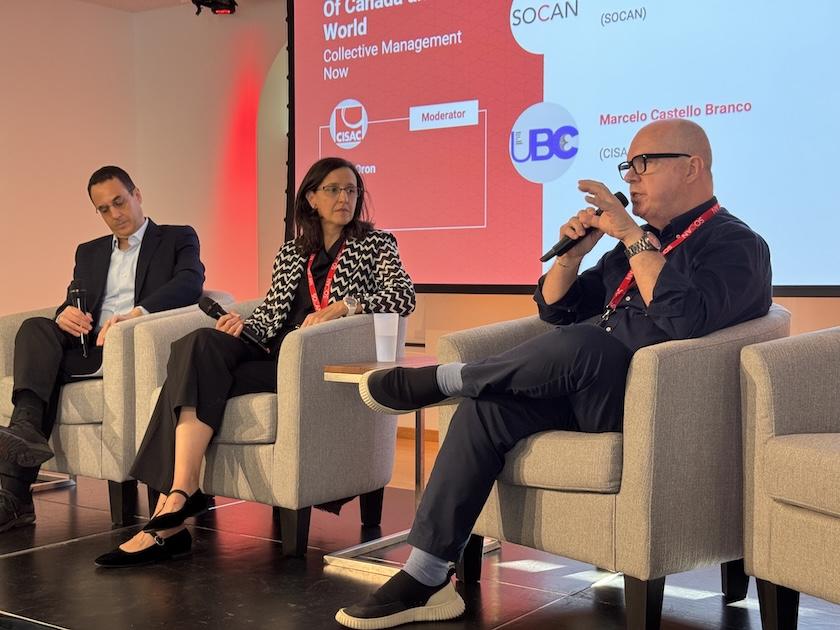

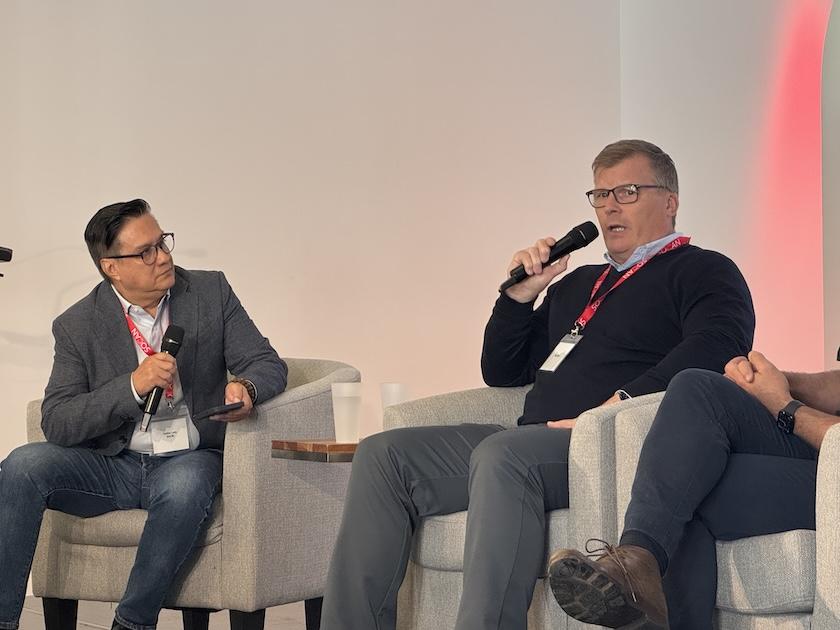
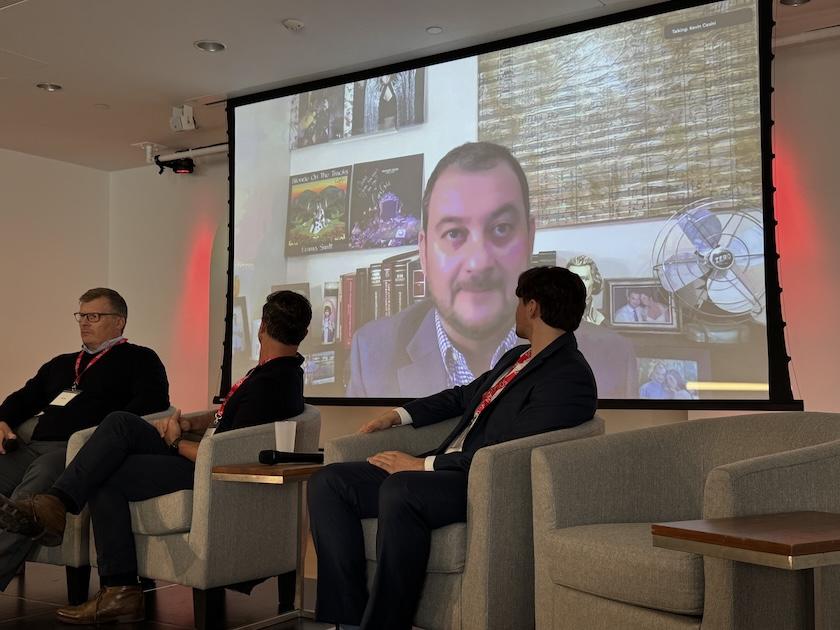
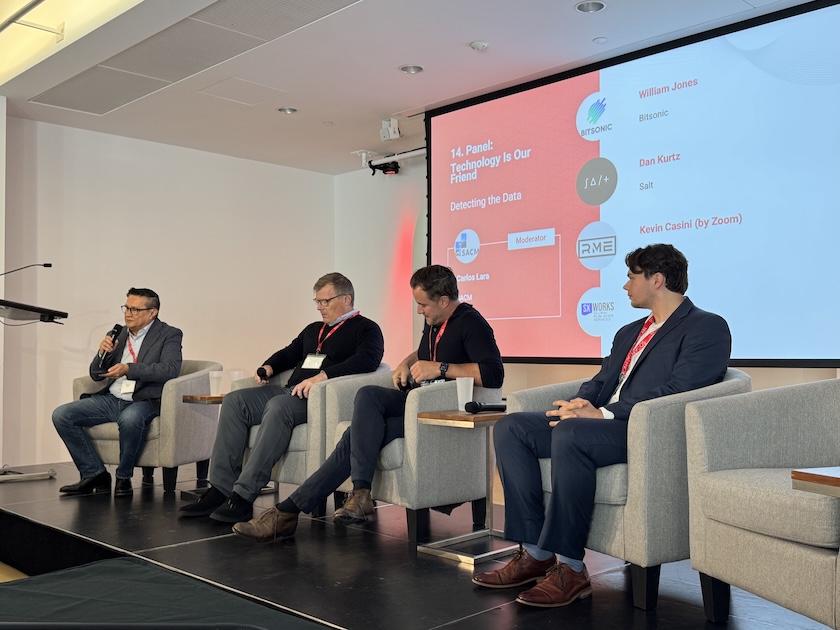
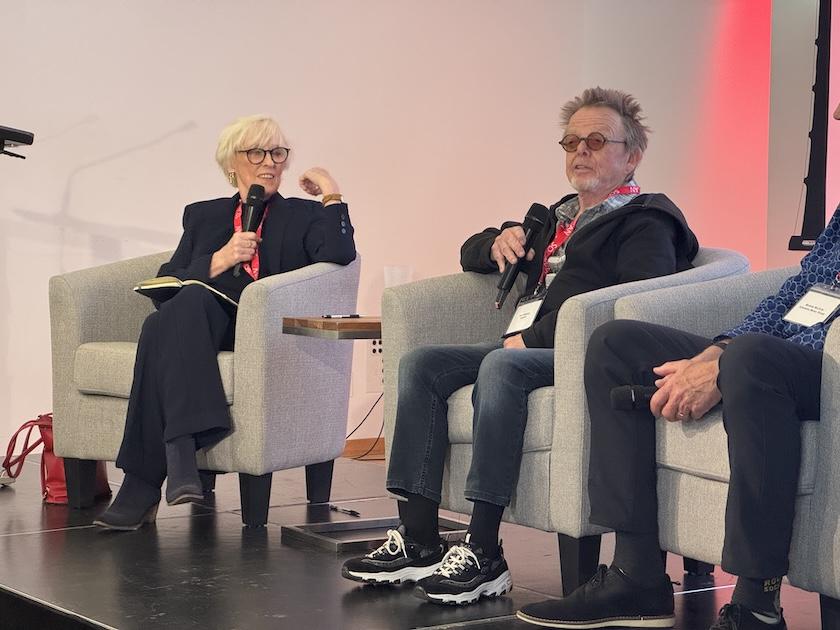
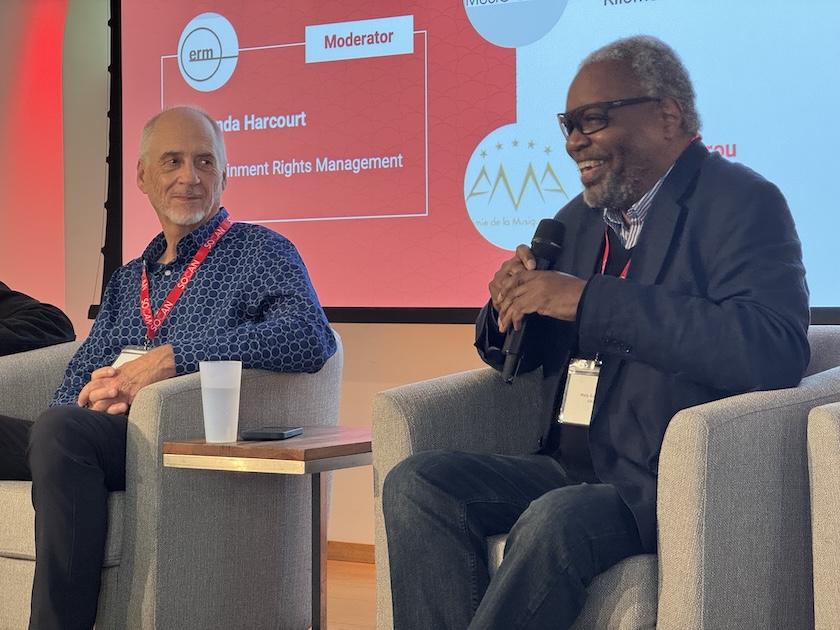
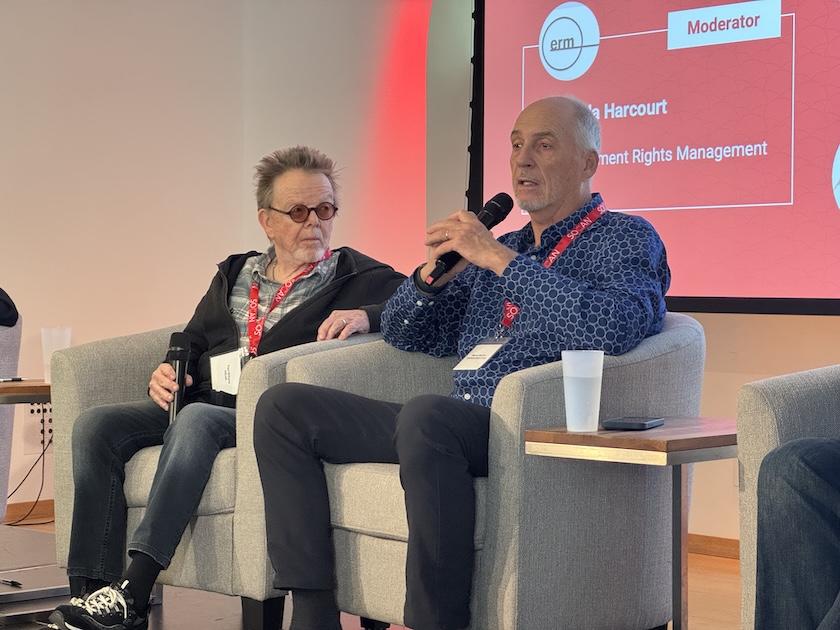
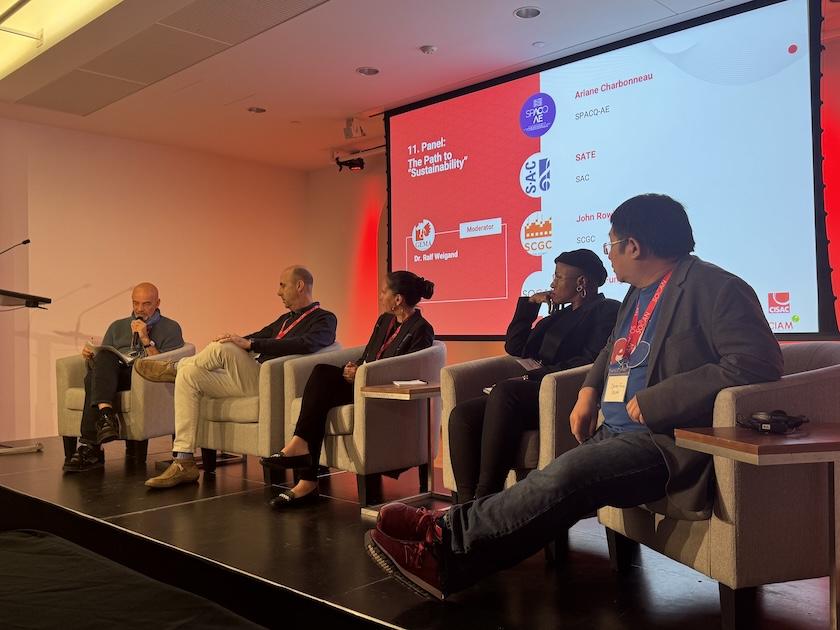
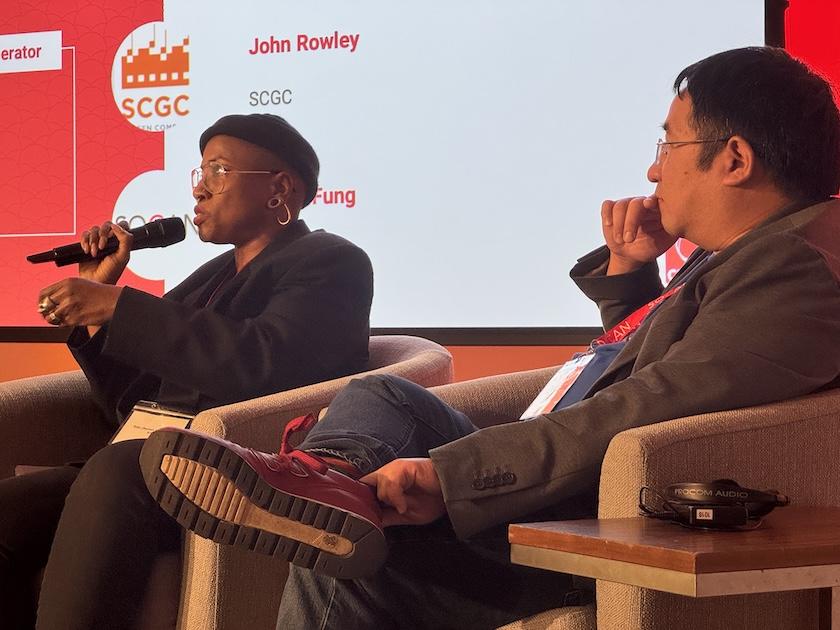
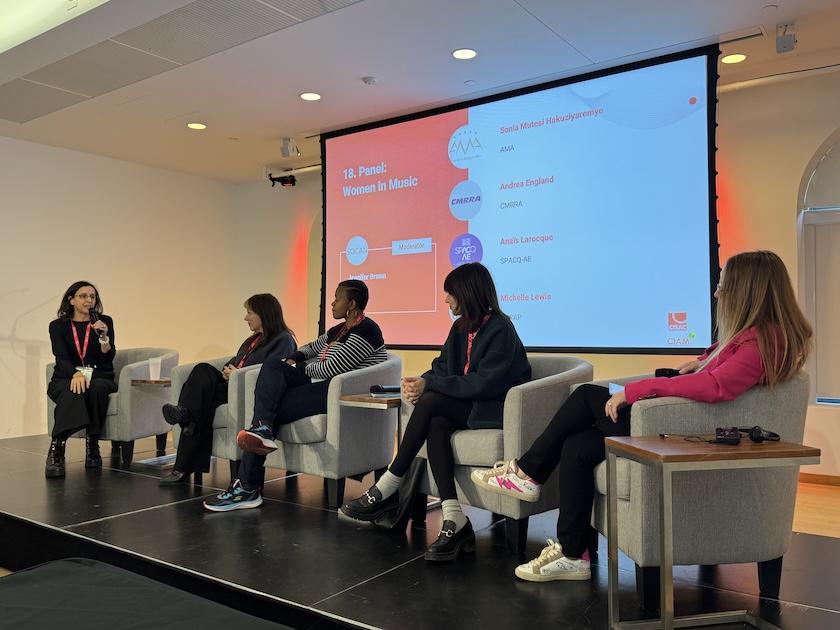
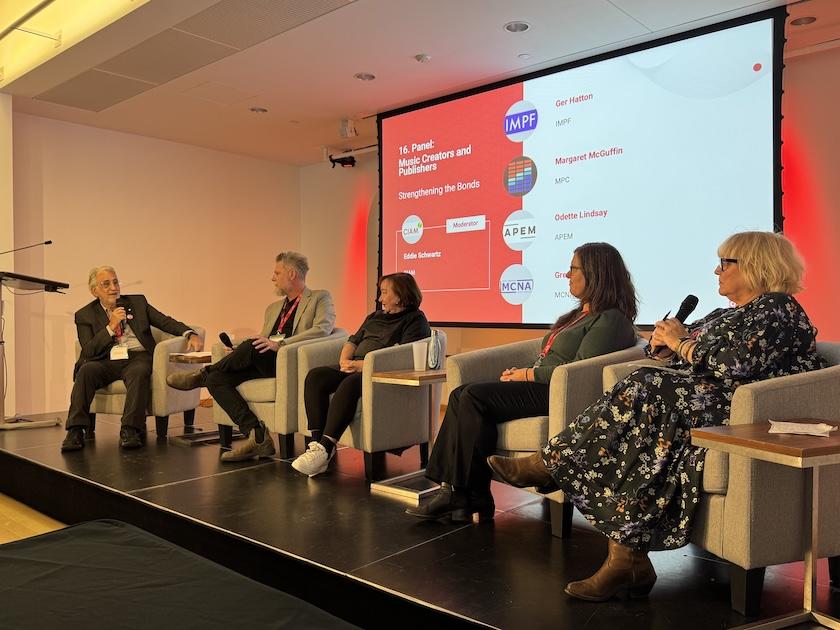
Partner Alliances Regional Updates
Music Creators North America (MCNA) discussed advocacy in Canada around Bill C-11, the Modernization of the Canadian Broadcast Act, and AI-related issues in the U.S. and Canadian legislatures. The African Music Academy (AMA) celebrated its inaugural AMA Awards and detailed new educational initiatives, a partnership with the African Music Library in Nigeria, and collaborations with WIPO. AMA developed a partnership with SNAC (France) to offer free legal support for its members.
ALCAM (Latin American Alliance of Music Creators) unveiled new branding and initiatives focusing on digital literacy, creative collaborations, author rights training sessions, and upcoming workshops and mentoring across Latin America. The European Composers and Songwriters Alliance (ECSA) outlined their recent manifesto and activities addressing AI provider practices with the European Commission.
The Asia-Pacific Music Alliance (APMA) detailed its efforts improving capabilities of CMOs as well as projects to improve IT software support. APMA announced donations to Ukrainian society UACRR and the African Music Academy.
Fair Trade Music International (FTMI) highlighted the generative AI white paper by Professor Gervais and is working to ensure fair remuneration for creators on streaming platforms. FTMI announced the 2024 Fair Trade Music International Awards, honoring songwriter, composer and inaugural Minister of Culture for Argentina Teresa Parodi and longtime creators’ rights advocate Satoshi Watanabe for their outstanding contributions to the cause of fair remuneration for music creators.
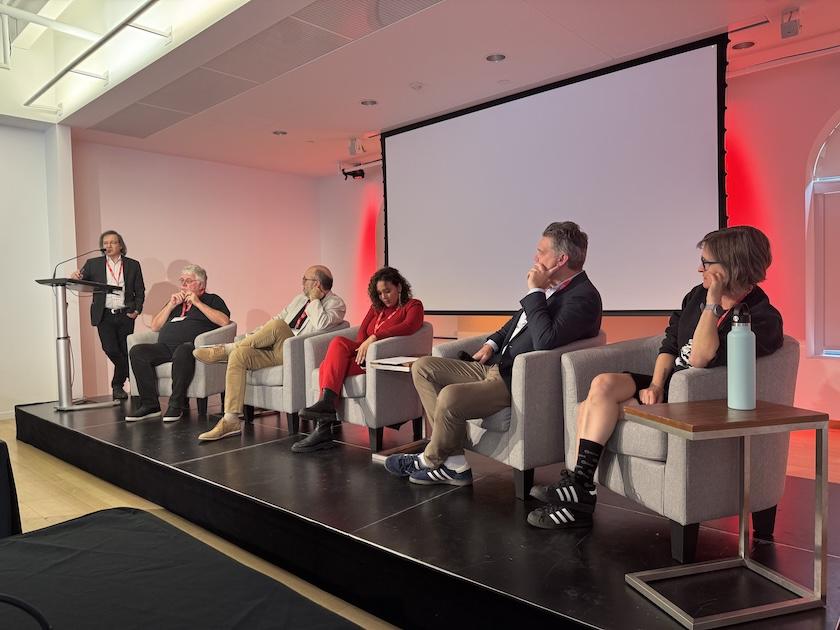
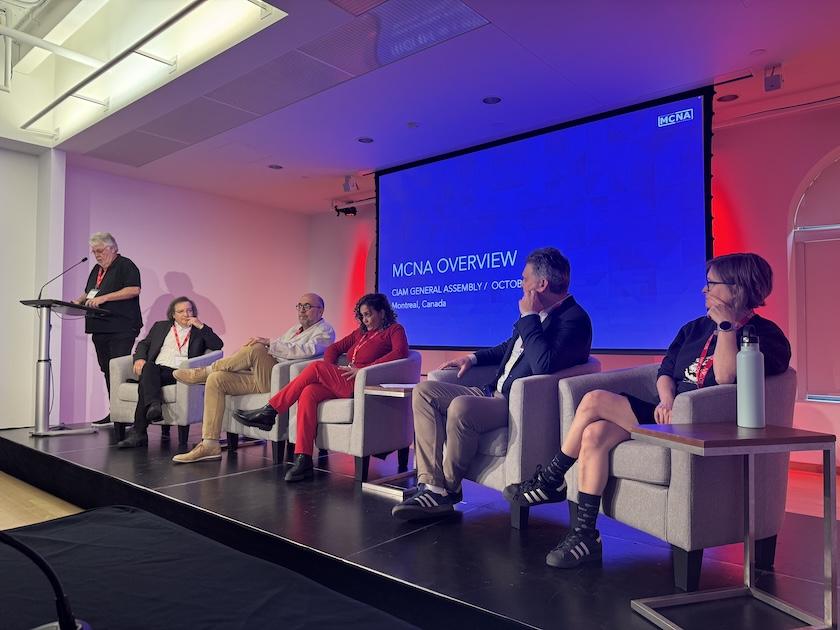
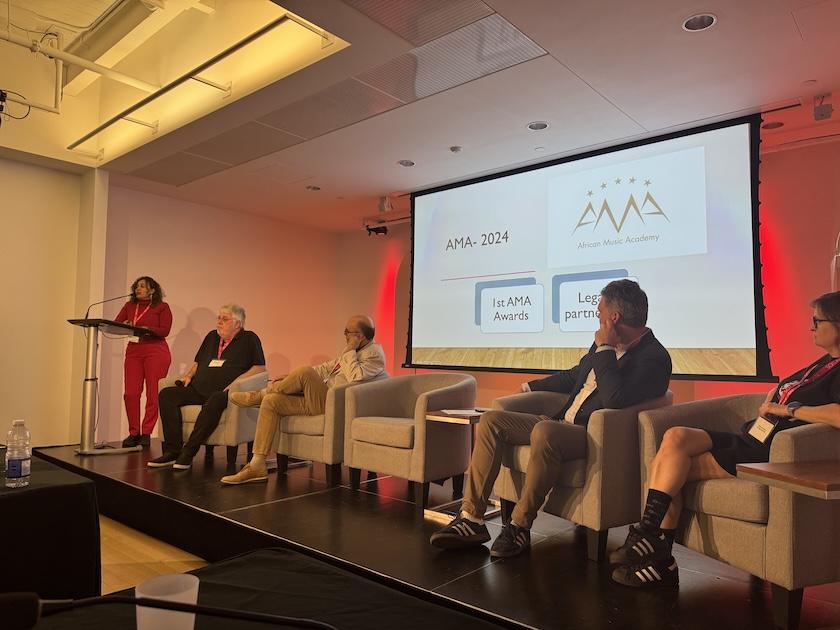
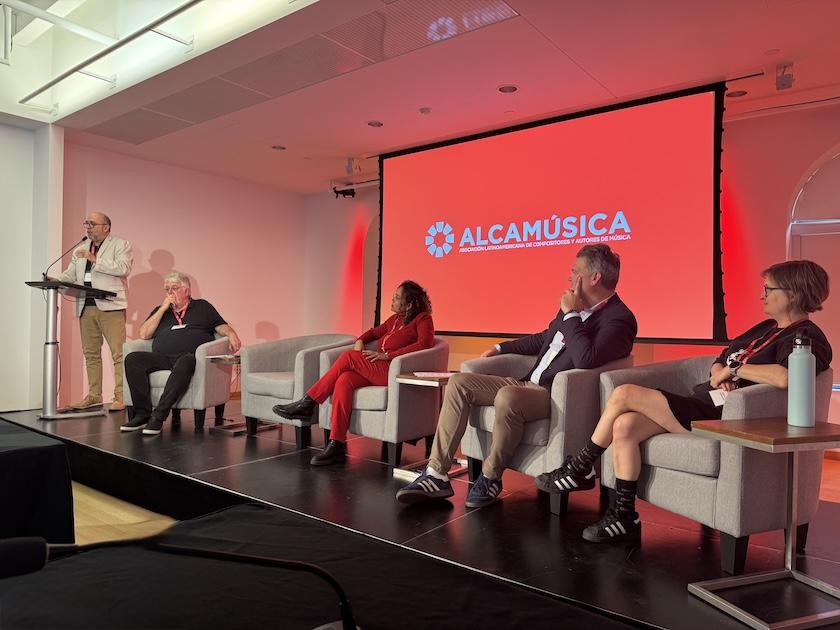
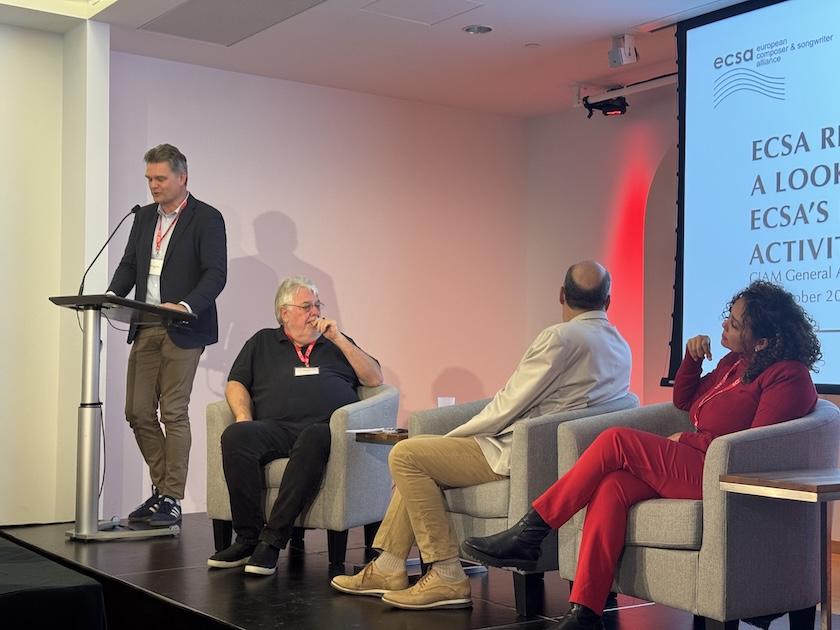

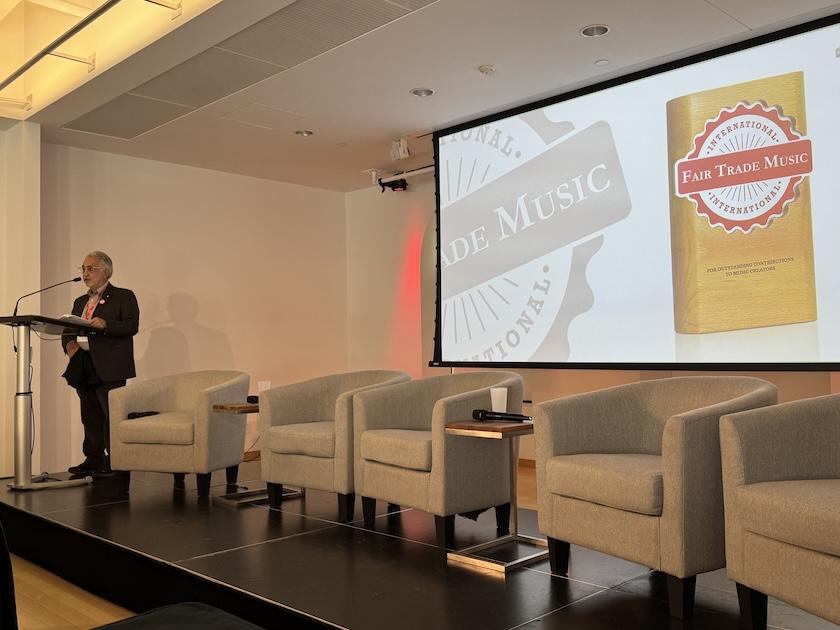
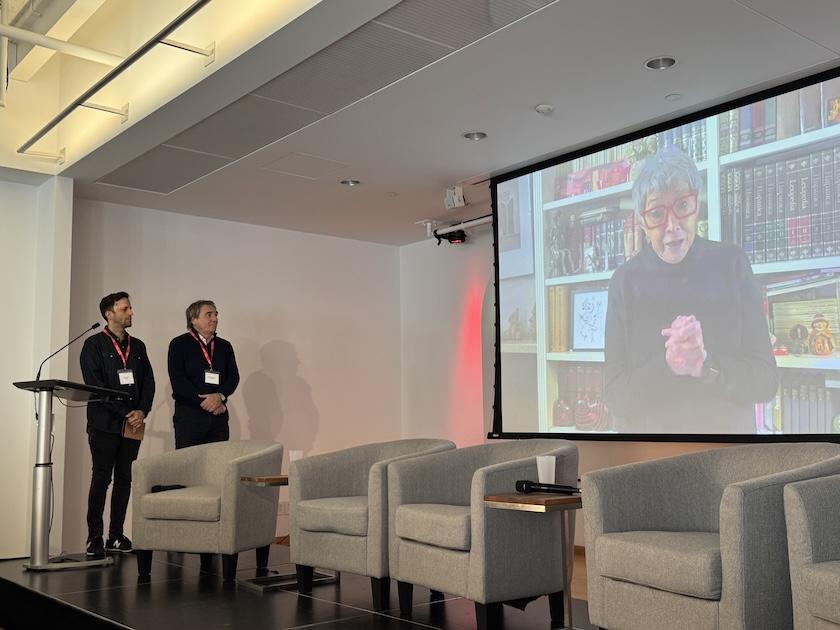
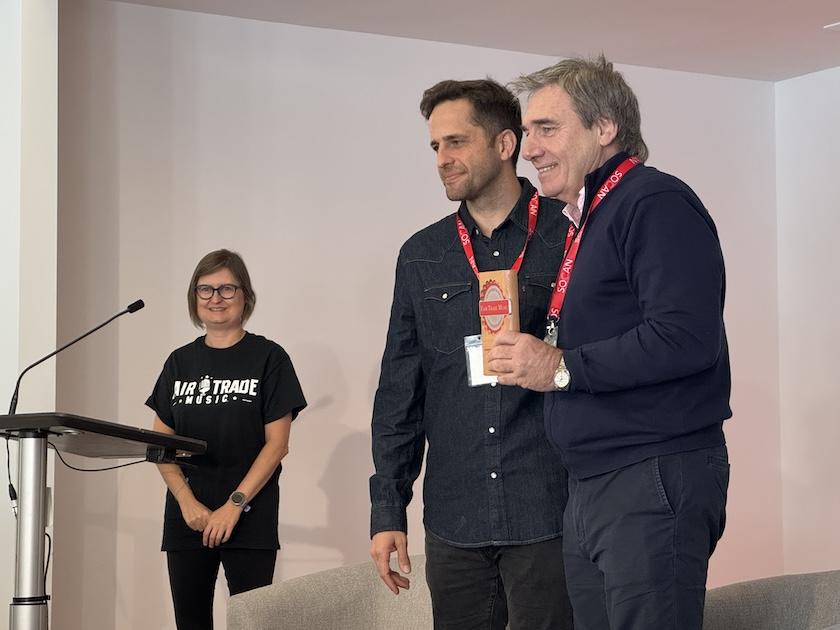
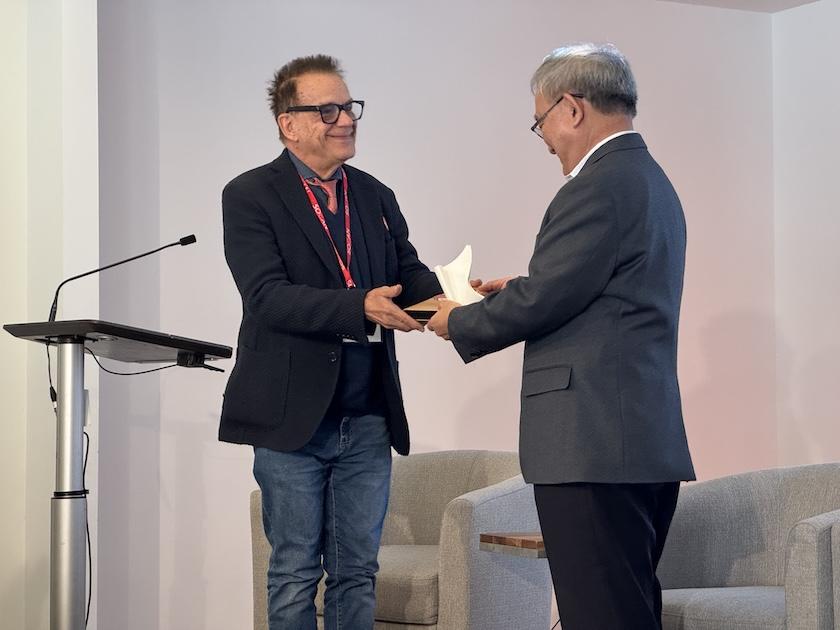
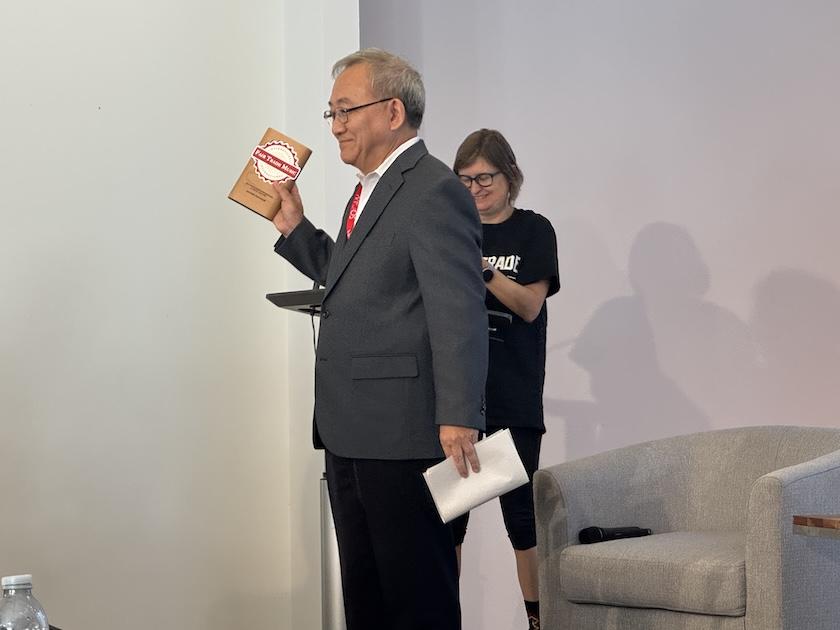
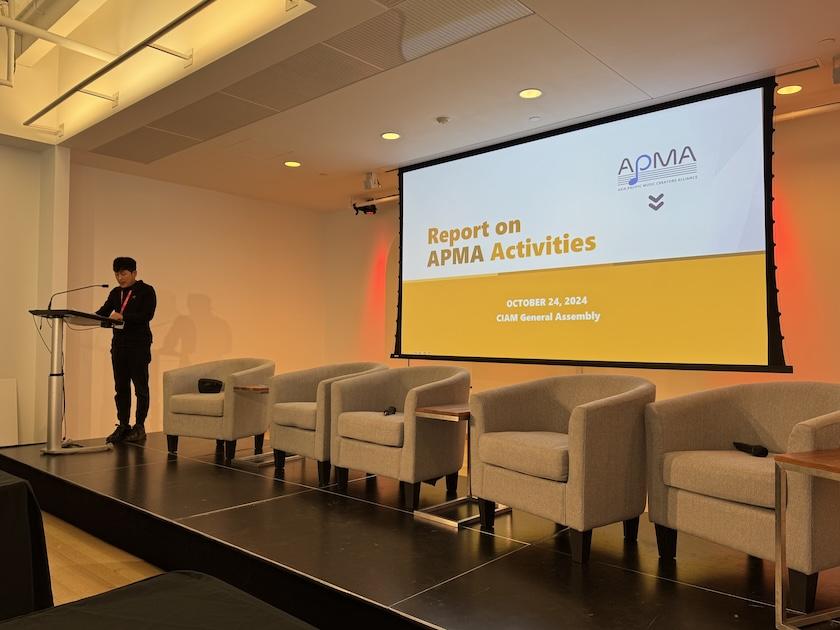
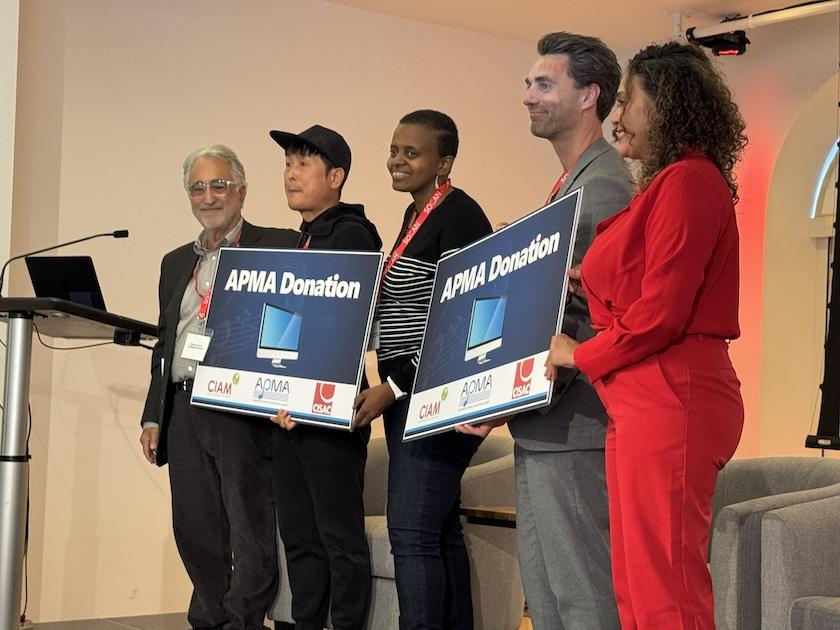
CIAM Women Songwriting Camp
Concluding the assembly, songwriters from the second CIAM women’s songwriting camp, held at Planet Studios, presented their songs and showcased the collaborative spirit among diverse creators. The camp included songwriters Shawnee Kish (Canada), Mélanie Venditti (CA), Carole Facal (Canada), Deniso De’ion (Canada), Nitanee Paris (USA), Rivita Goyle (USA), Misia Furtak (Poland), Madara Perkone (Netherlands), Marcela de la Garza (Mexico), Luciane Dom (Brazil), Andrea Alvarez (Argentina), AILI (Japan), Merlin D’Souza (India), and Eva (Lam si Man, Macau), who shared insights into their creative processes.
In closing the GA, Eddie Schwartz reflected on his tenure as President, expressing gratitude for the opportunity to foster a global community of music creators. Schwartz highlighted the progress made over the years, describing CIAM as a “global family” working toward a shared goal of agency and fair treatment for all creators.
